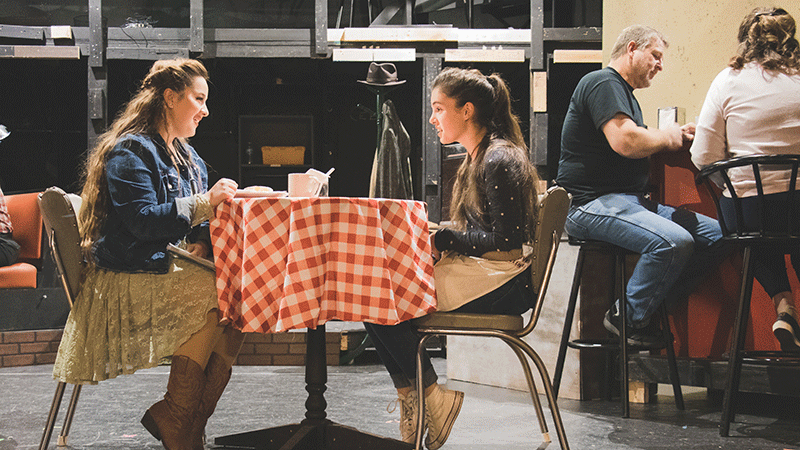

Bo, for one, is about as tame as the steers he wrestles to the ground, while Lyman’s wooing of Elma is a bit uncomfortable these days. While a classic, the play certainly shows its age a bit. Virgil and Will, meanwhile, play guitar and keep the peace, respectively.

BUS STOP WILLIAM INGE SCRIPT DRIVER
She has second - and third and fourth - thoughts about the idea, however.īus driver Carl has taken an interest in Grace, and the pair disappear for the better part of the play.Īnd then there’s the Shakespeare-quoting Lyman, who has a significant drinking problem and makes overtures to young Elma, a reminder of his first of many wives. The boorish Bo - he has never strayed from his ranch and has never been with a woman before - has essentially corralled Cherie, whose career has never materialized the way she had hoped, placed her on the bus and is taking her back to Montana, where he intends to make her his wife. The main plot involves Bo and Cherie (whom he calls ‘Cherry’). The story sees the passengers of a bus stranded overnight at Grace’s diner during a snowstorm that has blocked the highway and knocked out the telephone lines.ĭisembarking from the bus are driver Carl (Richard Palimaka), ranch owner Bo Decker (James Gow), guitar-playing ranch hand Virgil Blessing (Andy Palmer), former philosophy professor Gerald Lyman (Robert Bruce) and nightclub ‘chanteuse’ Cherie (Jennifer Verardi).Īwaiting them inside are diner owner Grace Hoylard (Yvonne Neatby), waitress and high school student Elma Duckworth (Madelin Dawson) and the sheriff, Will Masters (Robert McMahon). A nice touch among many on the stellar set.
BUS STOP WILLIAM INGE SCRIPT MOVIE
In fact, after taking in the immediately impressive set when you enter the theatre - the meticulous red, white and light blue interior of a Kansas City, Mo., diner called Grace’s - you notice Monroe’s face on the cover of Movie Life magazine on the diner’s magazine rack, and her glossy framed and hanging on the wall amongst the other Hollywood stars. Unlike the two-actor opener Letters in Wartime, William Inge’s Bus Stop, first staged in 1955, features eight characters and is considered something of a classic, so much so it was the basis for a 1956 film starring Marilyn Monroe. KINGSTON - For its second production of the season, the Domino Theatre shifts gears.


 0 kommentar(er)
0 kommentar(er)
